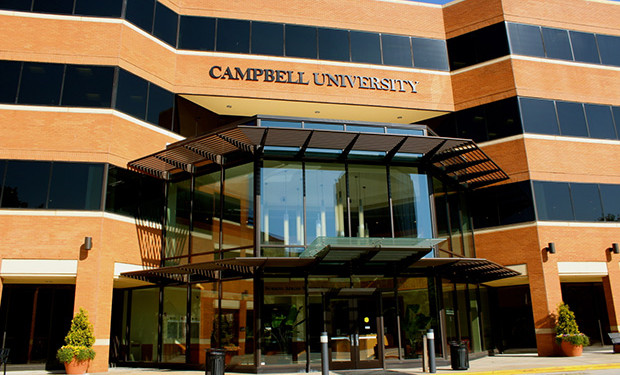Letter from the Editor
 Recently, I have become more keenly aware of one of my quirkier attributes. I have an aversion to technology. I am a 27-year-old soon-to-be young professional who, for all intents and purposes, fears the inevitable direction that technology is moving.
Recently, I have become more keenly aware of one of my quirkier attributes. I have an aversion to technology. I am a 27-year-old soon-to-be young professional who, for all intents and purposes, fears the inevitable direction that technology is moving.
Two recent events spurred this self-awareness.
First, I found myself standing in Capitol Hill Books in Washington, D.C. earlier this month. For those who have not been to this landmark, it’s a used bookstore just outside of the Eastern Market near the United States Capitol. Inside, the ornery owner promises to inflict bodily harm on patrons if they mess with this unique collection. It’s a relic. It’s unique. It’s also about to be rendered completely obsolete.
I stood thumbing through books that had lived hard lives, but certainly had a story to tell. The dog-eared pages illuminated the care, or lack of care, previous owners took of these books. I asked a friend of mine who was with me whether he thought a store like this would have a place in our society in 10 years.
The second event was when, moments after visiting this used bookstore with my friend, we went back to his house and were chatting about a recent article that we’d both read. Neither of us had the actual article readily available to reference the points we were attempting to make. However, my friend conveniently, and I do use conveniently purposefully here, pulled out his iPad to pull up the article.
I shook my head and laughed a bit. Just moments ago, we were remarking (very nostalgically) about how nice it was to see people reading actual books, and now we were partaking in the exact activity that is causing such a drastic shift in the way we consume reading materials.
Here’s my point: We can all sit around and think about how wonderful actual books and magazines are. And we can reminisce about the feeling we have when opening a Sunday newspaper and getting our fingers stained from newsprint while we flip the pages. But, at the end of the day, we have to face the fact that this technological revolution is not the wave of the future; rather, it’s the wave that we are all currently riding on.
We, as lawyers, wade in a sea of antiquity. We all really like leather-bound books. We work in one of the few professions that uses words that are so old that when we type them in Microsoft Word a red line appears under the word denoting that it is, in fact, not recognized in the dictionary.
But there are great changes occurring that will inevitably help to make those in our trade more efficient and more informed.
This website, while not revolutionary, is certainly unique. For decades, the Campbell Law Observer has been printed and delivered to every single attorney in the state. Most of the time, editors were forced to choose article topics that would be informative weeks after staff writers wrote on the topic. The writing process, followed by the editing and formatting of the paper, could take up to three weeks.
Last year, my editorial team and I went through an experience that exposed the inefficient nature of the publication. One of our staff writers wrote an excellent article on a piece of very contentious legislation that had recently passed in both chambers of the General Assembly. Our staff writer researched and wrote the article. We sent it out to be formatted and published. And the day before we were to send you all copies, the Governor vetoed the bill.
Not only was the writer frustrated, but I, as the Editor in Chief, was also very frustrated. Hours of research and writing were rendered useless and this untimely article was currently being printed onto thousands of pieces of paper a few miles away from our school.
I, along with a number of other students, decided it was time to make this publication more professional, current, informative, and efficient. What you are viewing now is the product of a year’s work. We worked with school administrators to strategically focus the content in this online publication and we recruited some of the smartest and best writers at our school to contribute to the Law Observer.
And we are now ready to present a publication that will showcase what happens when bright students collaborate with great legal minds to produce an online publication that keeps readers up-to-date and informed about trending legal topics on a local and national scale.
While this article is entitled “Letter from the Editor,” I am, in fact, no longer the editor. Two weeks ago, our editorial board elected a new board. I challenge all of you, as legal professionals, to work with the new editorial board to make this online publication the best of its kind.
As you can see on the front page of this website, we want attorneys to help both students and other attorneys to understand the law better. Jerry Meek, an attorney for whom I have the utmost respect, has been a zealous advocate of this publication for a while now. He chose to use our publication to disseminate a particularly helpful guide to a complicated legal matter. If you want to do something similar then just get in touch.
It’s time for the legal community to embrace the many great opportunities that online content provides. While I will miss thumbing through the newsprint pages of the Campbell Law Observer, it’s time that I change my attitude that reading material found on a laptop or iPad is inferior and recognize the fact that online content provides both readers and writers a unique opportunity to quickly learn and disseminate information. By leveraging technology, not fighting it, the legal profession will move seamlessly into its next chapter.
Thanks for visiting our site, and I hope you continue to come back for more.






